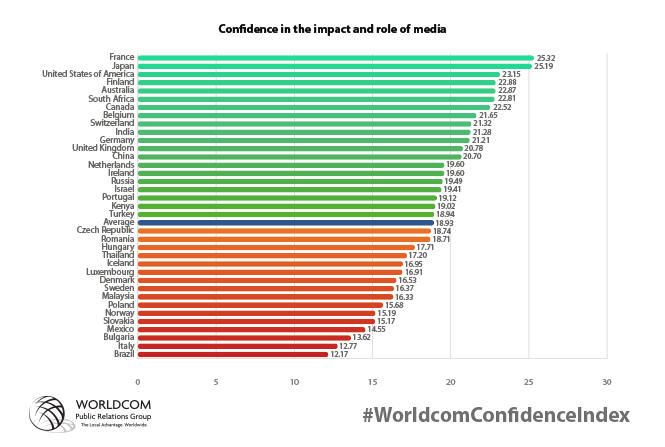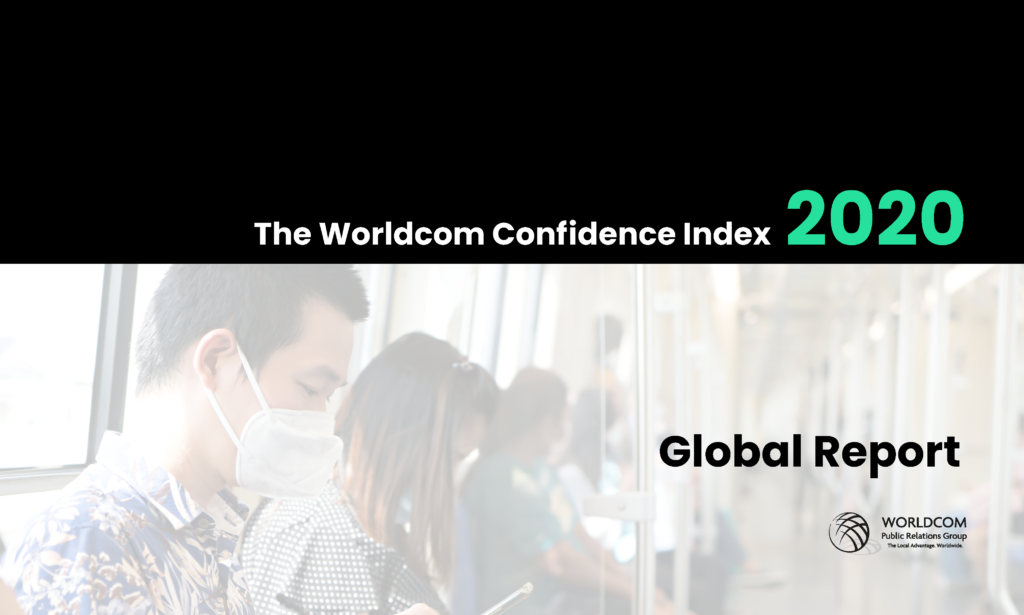NEW YORK (November 16, 2020) – Worldcom’s Confidence Index (WCI) annual report for the 12 months to September 2020 released today reveals interesting shifts in CEO/CMO confidence over the last year. The stand-out change since 2019 was the rise in confidence of female leaders by seven percent and the decline in confidence of male leaders by the same figure[i]. As this covers the pandemic period, the result suggests that female leaders are more confident about handling a crisis than their male peers. Despite the upward shift in confidence for female leaders, overall global confidence in the C-suite declined by eight percent from 2019[ii]. The WCI findings provide valuable insights to help organizations plan for the coming year.
The changes to business operations caused by the pandemic seem to have triggered two significant changes in confidence. Confidence in the ability to upskill and reskill rose 15 places to #1 on the WCI. And, not surprising given the forced shift due to COVID-19, confidence in using technology to collaborate and innovate moved up 16 places to #2 on the WCI[iii]. Both these areas will remain central to success in 2021.
The most significant increases in leaders’ engagement with topics did not translate into increased confidence. As might have been expected, engagement with government and legislative change increased 79 percent from the 2019 level, and engagement with crisis management rose by 40 percent[iv]. However, both topics remained in the top five topics of concern (lowest confidence) along with global trade agreements and tariffs, the impact on business of the way political leaders communicate on social media, and sexual harassment and other bad behavior[v].
Roger Hurni, Chair of The Worldcom Public Relations Group, said: “Worldcom believes people take action when they feel confident that it will deliver the outcomes they want. The confidence inspired by female leaders like Jacinda Ardern, Angela Merkel, and now Kamala Harris, has certainly helped them achieve key goals. Therefore, we hope our report will help crystallize where leaders will want to place more focus in 2021 so that they inspire confidence in all their stakeholders.”
U.S. leaders rank most confident
The confidence of leaders in the U.S. rose 26 percent from 2019, making them the most confident globally[vi]. However, this increased confidence was not experienced across all the business topics in the WCI. For example, U.S. leaders’ confidence in data privacy and protection fell by 23 percent since 2019.
Roger Hurni continued: “Despite the pandemic, 2020 has seen a big focus on the need for diversity in every business. The changes in confidence by gender since 2019 show why diversity aids business performance. Companies who have taken steps to strengthen their leadership team in this way should perform strongly in 2021.”
Confidence in handling the media increases
Confidence in the impact and role of the media has increased since 2019. This topic moved from last place in 2019 to #10 on the WCI in 2020. Leaders in France are the most confident, while leaders in Brazil are the most concerned about this topic[vii].
Todd Lynch, Managing Director of The Worldcom Public Relations Group, said, “Our decision to augment our research using artificial intelligence has paid dividends in the increased breadth and depth of the insight we can provide. In the 2020 report, we provided results for 36 countries compared to 15 in 2019. We expect this to grow to 46 countries by the end of 2020. We are confident that the insight delivered by the WCI will enable organizations to develop key strategic campaigns that create a meaningful impact in 2021.”
The Worldcom Confidence Index 12
The Worldcom Confidence Index highlights concerns/confidence of over 54,000 CEOs and CMOs globally, across 23 topics and six audiences. The Worldcom Confidence Index 12, can be seen in more detail here.
Download the 2020 Worldcom Confidence Index 12 Infographic
The top 12 findings for the year to September 2020 are as follows:
Global trends
#1 The pandemic drives leaders’ confidence down. Only four topics increased in confidence globally
#2 Are female leaders better at handling crises? Female leaders’ confidence increased by 7% while male leaders’ confidence decreased by 7%
#3 Confidence in the impact and role of the media increased since 2019. This topic moved from last place in 2019 to #10 on the WCI in 2020
#4 Confidence in employee issues falls, with four dropping out of the top six on the WCI since 2019
#5 Upskilling and reskilling is the #1 topic for leader attention and confidence
#6 Confidence in the use of technology to collaborate and innovate moves up 16 places to #2 on the WCI
#7 The pandemic drives the most significant increases in leaders’ engagement. Government, and legislative change increased 79% from the 2019 level and crisis management rose by 40%
#8 Leaders continue to focus on long term challenges. Plastics and other sustainability topics have the fourth-highest level of engagement globally
#9 The rise of new influencers keeps influencers #1 audience for leaders
#10 North America becomes the most confident region, up from #5 in 2019. Latin America remains the least confident region
#11 Industry sector confidence table points to the winners and losers of the pandemic. Utilities are the most confident sector of 11 in the WCI
#12 It pays to have a local view on leadership confidence. The WCI uncovers some marked differences in confidence, and changes in confidence, between the 36 countries. For example, the confidence of Russian leaders in government and legislative change fell by 21% since 2019, but French leaders’ confidence in the same topic increased by 22%.
Video, charts and additional insights
Additional insights and charts can be seen here.
View the Global results of the Annual 2020 WCI in a summary video.
Methodology
The study was able to operate at this scale, and in nine different languages, because the data was captured using a breakthrough approach powered by artificial intelligence (AI).
About The Worldcom Public Relations Group
The Worldcom Public Relations Group (Worldcom) is the world’s leading partnership of independently owned public relations firms, with 143 offices employing some 2,000 staff in 115 cities across six continents. In total, Worldcom partners reported a combined revenue of U.S. $300+ million last year from 3,034 clients. Established in 1988, the group was formed so that the strongest, most capable independent firms could inspire direct action from stakeholders in a way that delivers immediate results and lasting outcomes– wherever in the world a client needs support.
Worldcom’s partners deliver unique connectivity to their marketplace. This provides clients direct access to the audiences they most want to take action and to specialists that can deliver on challenging problems. As a result, strategies and campaigns see immediate reactions that turn into sustained audience actions. Partners serve national, international, and multinational clients while retaining the flexibility and client-service focus inherent in independent agencies. Through Worldcom, clients have on-demand access to in-depth communications expertise from professionals who understand the language, culture, and customs of the geographic areas in which they operate. Learn more about Worldcom at www.worldcomgroup.com or by calling 1-800-955-9675.
Connect with The Worldcom PR Group on Facebook and LinkedIn.
# # #
Contact: Todd Lynch, (904) 233-0123, [email protected]
[i]
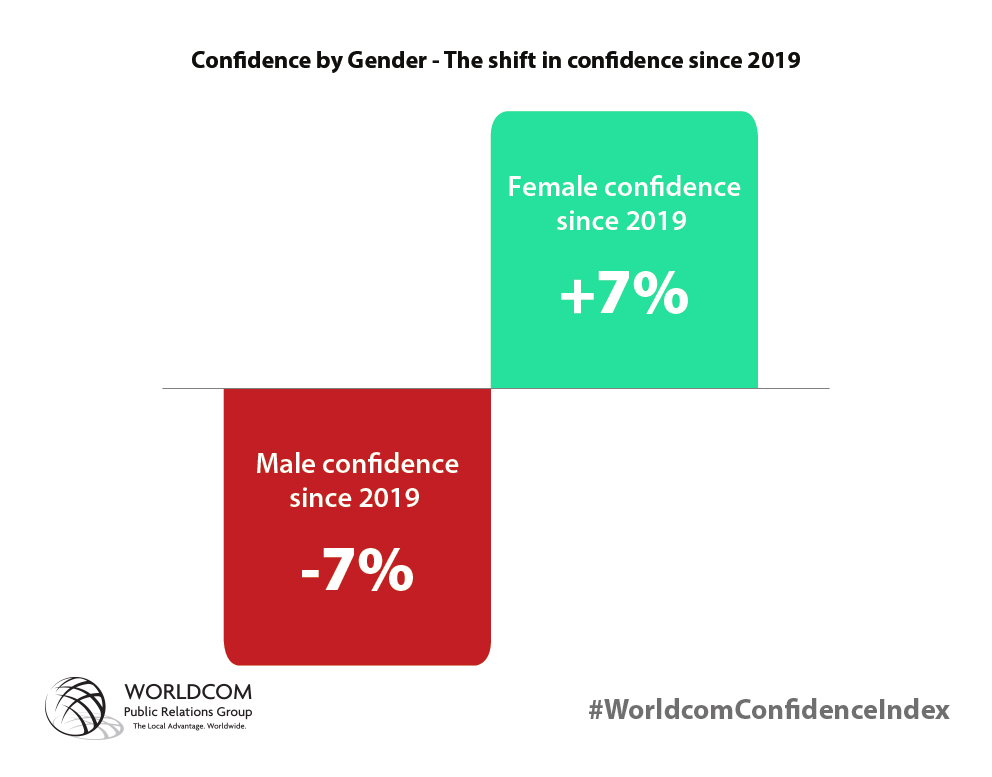
[ii]
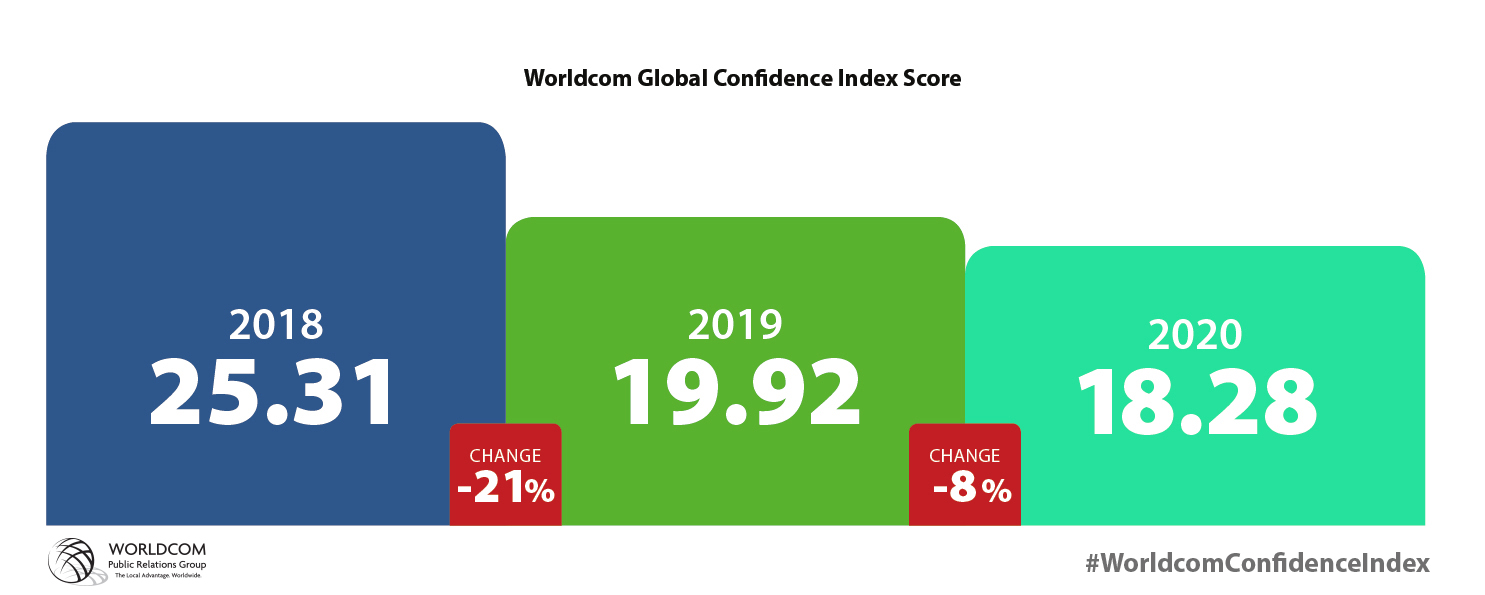
[iii]
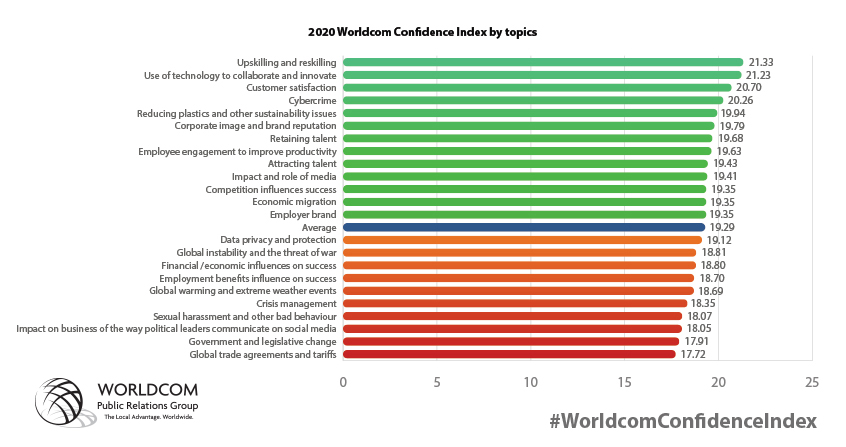
[iv]
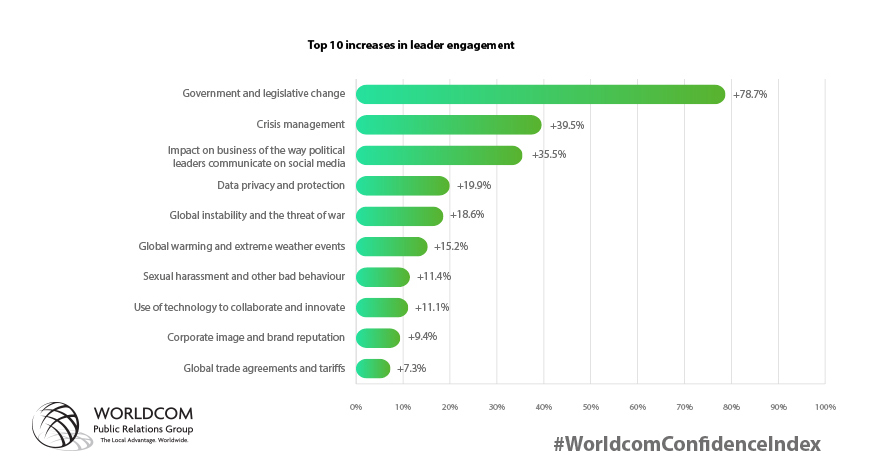
[v]
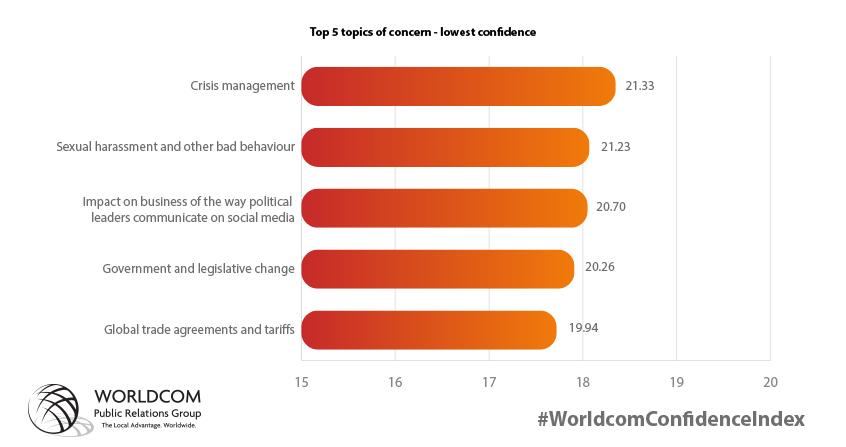
[vi]
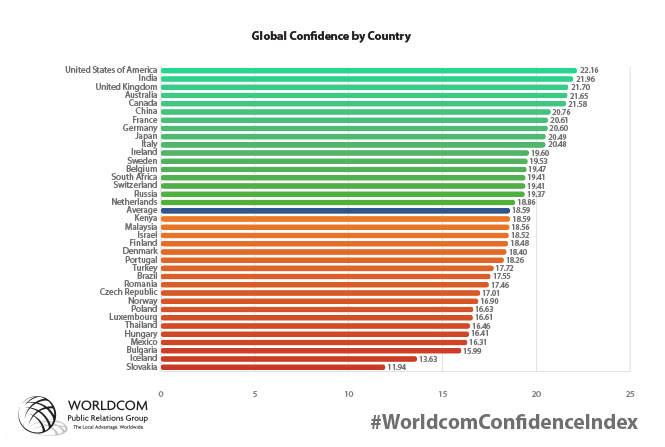
[vii]
